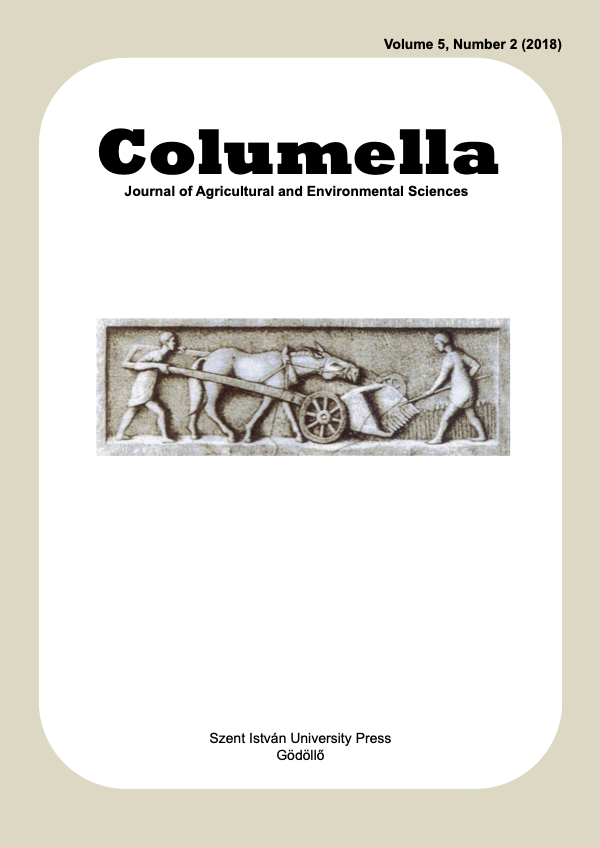Preliminary results of a pot experiment with the combined effects of a terrestrial isopod species (Porcellionides pruinosus, Brandt 1833) and organic mulching on tomato
DOI:
https://doi.org/10.18380/SZIE.COLUM.2018.5.2.21Keywords:
Oniscidea, soil fertility, woodlice, soil coverAbstract
Organic mulching practice has a beneficial effect on soil life. Increased soil activity may in turn lead to increased soil fertility. To study the effect of terrestrial isopods and organic mulch on potted tomatoes we measured the growth, vitality and yield of plants. Half of the pots had the surface of the soil covered with a mulch of equal quantity of walnut (Juglans regia), elm (Ulmus minor) and maple (Acer platanoides) leaves; and half of them had the soil uncovered. 20 Porcellionides pruinosus (Brandt, 1833) individuals were introduced to every second pot. There were four treatments in 10 replicates: (1) I+M+ (isopods, mulching); (2) I+M- (isopods, no mulching); (3) I-M+ (no isopods, mulching) and (4) I-M- (no isopods, no mulching). To determine the microbial activity of the soil, fluorescein diacetate hydrolysis activity was measured. The fluorescein diacetate concentration was higher in the “combined” treatment than in the “isopods only” treatment, and in the “mulch only” treatment. Regardless of treatment, overall microbial activity figures were lower after the experiment than their respective starting values. The “combined” treatment significantly increased the generative growth of tomatoes. The number of flowers was significantly higher, and thus significantly more tomato was harvested when compared to the “control” treatment. Our preliminary results indicate the beneficial effects of P. pruinosus, because its presence had an advantageous influence on tomato yield.
Downloads
Published
Issue
Section
License
Copyright (c) 2018 Anett Mészárosné Póss, Angéla Zanker, Franciska Tóthné Bogdányi, Ferenc Tóth

This work is licensed under a Creative Commons Attribution-NonCommercial-NoDerivatives 4.0 International License.






